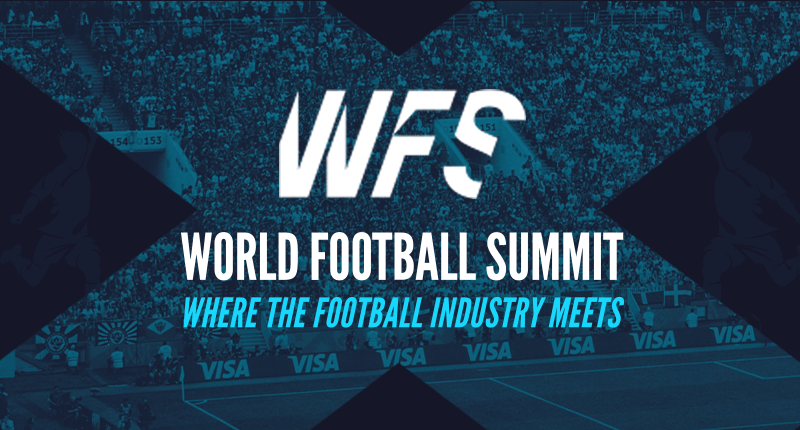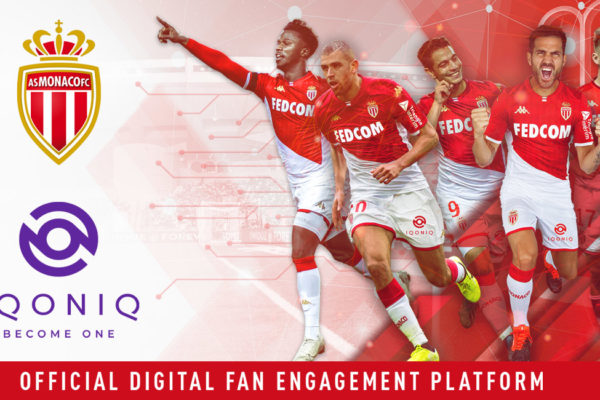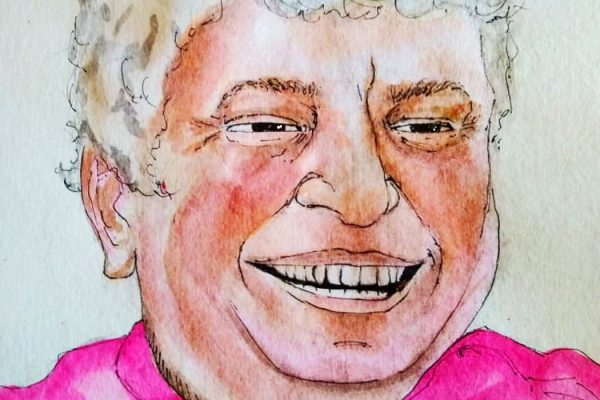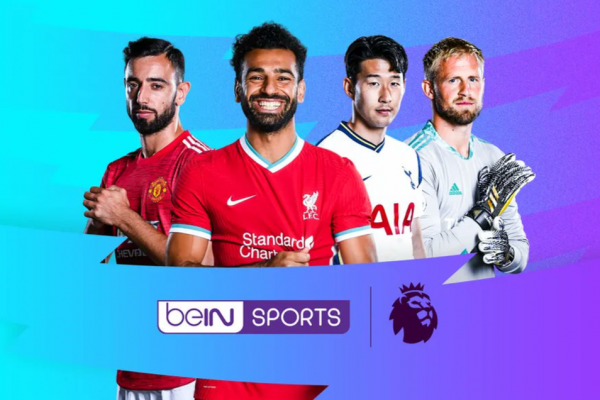Big Bang Media Ventures Pvt Ltd (BBMVPL) is one of the country’s leading content, education, esports and talent management conglomerates with market leading brands viz Collective Artists Network, Phantom, Mythoverse, AISTS India, NASEF India under it’s umbrella. BBMVPL also recently conducted the Asia Open esports championship in partnership with the International E Sports Federation (IESF) and partnered with Hockey India to look after commercial . The Playknox spoke with Ravneet Gill, former MD and CEO of Deutsche Bank & Yes Bank and Founder of Big Bang Media Ventures to found out more.
What was the thought process behind forming the Big Bang Media Ventures?
The starting point of this entire venture was that many of us are very passionate about sport in our lives. Mostly, the definition of giving back to sports is that you watch sports passively and occasionally go and play. However, at the end of the day, I think there’s almost a duty that you should give back to sport in some form or shape. One of the things which I find in India, which is fairly widespread, is the fact that people attribute our lack of sporting prowess to not having enough infrastructure in place. The counter that I have to that is we could definitely have a better and more effective infrastructure, but even the infrastructure that we currently have, we don’t make the most of it. And it all comes down to the fact that there’s so much influence of both science and technology in sports now, that unless you understand that as an athlete, as an administrator, as a coach, as a trainer, you will not be able to create world-class athletes. And that bothers me simply because if you look at all the large countries of the world, without exception, India is the only one which is not a sporting superpower yet.
All you need to do is look at the Olympics. The medal tally is in descending order of the world GDPs. Given the fact that our population is younger than most nations with more than 50% of the population below 23 years of age, we should, frankly speaking, be dominating sports which is not the case. So, I think the starting point of what was, in my mind, the most material contribution that I could make to Indians was bringing AISTS here and being able to provide that education that will really mould leaders of Indian sports. That was my view on ‘giving back’. I also realised that there was a crossover happening between traditional sports and esports. And that is how we then ventured into esports.
And at the end of the day, you have to think about what is it that drives the younger generation, what is it that is influencing Gen Z’s consumption of content, entertainment, and sports and how you can be relevant to that. And then one thing led to another, but the biggest thing was of course, as far as esports is concerned, it needs a lot of amplification and we needed content partners who could provide that amplification that could reach deep into Gen Z and younger millennials. And that’s how the partnership with Big Bang happened. So it’s been a very evolutionary kind of journey, starting with sports education and going into esports and then esports education, and then finally, content and entertainment. The way we stand today, we could basically meet the recreational needs of every single Indian, it doesn’t matter whether you are 10, or you’re 70. I think we have something to offer to everybody and that in itself is an important enough objective.
So what do you think is the sports education future in India?
When initially I started talking about sports education, people used to question what I was doing as it was difficult for them to understand. In India, we grew up saying that it could either be sport or education. So when you put the two together, people are not able to dimension what does that means. That’s number one. Number two, is that they ask you where is the stadium that you have where you will be imparting training? And I then have to explain that this has nothing to do with physical training. This effectively speaking is a truly academic program that we are delivering. And when we talked about sports science, sports marketing, sports management, and sports law, it was all completely new to these people. So the reason why there are very few institutions in India is because the jobs in sports have effectively been event management jobs. And obviously, they’re not paying and also they typically have a short shelf life, how. And to that extent, people never looked at sport as a career. And the basis for any education is that it must translate into a proper profession, into a proper career. I think that’s changing now because what’s happened on the back of government initiatives like Khelo India, Fit India, what we are seeing on the back of all the private sector leagues coming up, suddenly the jobs are more in terms of data analytics and digital marketing, rights marketing, valuation of rights, eSports obviously and fan engagement. In terms of job content, these are much richer & more rewarding.
And obviously, they are better paying, but these are not jobs that you can end up landing simply because you’re passionate about sports. You need to be qualified, you need to be able to understand these principles. I think as that awareness grows in terms of sports being a proper full-time career and a very rewarding one at that, you’ll start seeing sports education coming into its own. There are a handful of institutions that are trying to do that right now but I feel that this is another 12 to 24 months before you see a major mushrooming of interest in sports education. I can also sense that the kind of careers that are now opening in sports are very exciting.
What do you think the future of the future of esports is in India and how to maintain that growth in the esports sector in our country?
First and foremost people playing physical sport tend to look down on esports. Their argument is that, if you really are a sportsperson, go out there and play any sort of sport like football.
Number two is that the general perception, at least at a parental level is that esports is some kind of digital addiction or you’re sitting in front of a screen and becoming a couch potato. The truth of the matter why esports has grown the way it has is because what it effectively does is converts screen time into activity time. This generation is very participative. They don’t want to consume content passively. The single biggest thing that was the driver for us in esports is that it can result in great learning, community building & strong entrepreneurial careers.
As a gamer, you get exposed to data time, data analytics, web designing, and coding. If you want to look at it educationally or as something that should expose you to learning, there’s no end to it. So we tied up with NASEF which is the pioneer in esports education. It is called esports education because it is based on gaming, but it’s all about building STEM skills – science, technology, engineering, and mathematics and making kids more fluent in technology. Also developing youngsters socially and emotionally.
What that program effectively does is that it builds a spirit of entrepreneurship and a spirit of innovation in the kids. If you look at all the innovation that happens globally, it either happens in Silicon Valley, or it happens in the Far East. Why should it not happen here? So given that we don’t have a large enough industrial base, and we cannot create jobs for all our young people, we have to become a country of job creators and not a country of job seekers. And one of the things we are trying to achieve through esports education is to understand how do you help kids convert their passion into a profession. Gaming needs to be understood a little better than it currently is, in terms of what it can do educationally for you, what it can do in terms of honing competitive spirit, what it does in terms of community building and your language skills.
Also, if you look at social media, the entire creator economy is going to be the next big thing as 30% of Gen Z want to become creators. There is no better finishing school than gaming for these people to become creators because when you look worldwide, some of the finest content creators and influencers are actually gamers. They know how to build communities and how to build engagements and that is what effectively you need. As the understanding becomes deeper in terms of what exactly gaming stands for and what it can deliver for you, it will become a very powerful trend. One data point is that 91% of Gen Z are gamers in some form or the other. There is no movement in the history of mankind which had the attention of 91% of that generation. So to my mind, gaming is not just sport or a digital addiction but gaming is one of the biggest cultural mega trends of all times.

Lot of interpretations still around gaming and esports and fantasy sports. Your thoughts.
A lot of people use gaming and esports interchangeably even when they are not. When we talk about gaming, I would like to broadly break up it up in three parts.
Firstly, there is the fantasy sports part. The second is the real money gaming where you can make money if you do well. And then the third aspect of gaming is called esports which has a more competitive element. And esports is now being seen increasingly as a mainstream sport. So for instance, it was there in the Asian Games and it’s there in the Commonwealth Games. Olympics is having the Olympic Esports series in Singapore in June. So I think there’s a greater recognition and that’s why esports needs to be looked at as a proper mainstream well defined sport.
We have focused our energies, attention on esports, not broadly on gaming, and luckily with esports, it was always seen as a game of skill. I’m not saying that people’s views on fantasy sport or on real money gaming are right or wrong. I am not being judgmental at all. Ultimately, it is the law of the land that’s supreme. But yes, it does create a certain degree of misapprehension in the minds of people that is this some kind of soft gambling. And given the fact that it has financial implication, can it lead to addiction? And I guess in extreme cases that also happens. But you can’t say that just because there have been lots of road accidents, build fewer roads. You don’t do that. We just say that make sensible traffic rules and, more importantly, ensure that they’re implemented properly.
For the first time the government has recognized gaming. There is much more attention and scrutiny now going on in terms of its regulation. I think there will be more clarity from the regulation, judicial stand point and people’s understanding of gaming, esports etc, will become much better as also their appreciation of what impact it has on the overall economy.
What is the working model of your partnership with AISTS?
The program is already available online and offline. And we have lots of students who are in different parts of the country and pursuing the program. All the classes are live & synchronous. AISTS is the world’s number one sports education. The entire curriculum has been curated by them and is delivered largely by their faculty.
So first and foremost, that is one part of it that you bring in the best curriculum and the best faculty. The second part of it is that we are very actively talking to partners, including some of the colleges like IITs, IIMs so that we can co-create certain content and it can jointly delivered & certified. This way the acceptability from a job perspective also becomes a lot broader and a lot wider. These are still early days for sports education, but I’m very glad to see now even the IITs and IIMs are talking to us about this and seeing this as being very relevant and becoming more mainstream in years to come. And at some point, in time, we would also like to see the government making use of a program like this. When we talk about making sports mandatory as part of the new education policy, it is equally important that you provide a good sports education too. Because just to tell the kids to go out there and play will not make them the champions of tomorrow. At the end of the day, our destiny as a sporting nation also needs to be measured in terms of podium finishes, and we need much more concerted effort. Many athletes who have played at a national and international level don’t always make it big in the sporting world due to a combination of factors. Therefore, one of the other main purposes of this education is that we can provide a safety net to athletes so that they have something as a backup, where they can continue to build a career in sports off the field.
Big Bang Media Ventures recently partnered with Hockey India to help them with their marketing needs. What does this partnership entail?
We have been talking to Hockey India for several months now to put the Hockey India league back on track. If you see what happened with Hockey India League till 2017, a lot of young talent came to the fore. The way our girls performed in the Tokyo Olympics, our men’s team won a bronze medal, was because our youngsters were exposed to very high quality, high caliber talent and they were playing against the best hockey players in the world as part of HIL. We need to resurrect that.
They were playing on television; they were playing in front of crowds which builds temperament ment very much like it has happened with our young cricketer as a result of IPL. So we were discussing with HI to put Hockey India League back on track for India to be able to reclaim its past glory. But of course, the thing really was that we need to make sure that the league is financially viable and sustainable. And the fact that the franchise owners are able to make a decent business out of that. Otherwise, it does in some ways impinge on your long-term commitment, long term investment into the league. So our role with Hockey India League is that we are the exclusive commercial rights marketing partner. So, as a result of that we are responsible for sale of the franchises, media rights (TV & digital) and all of the sponsorships & in-stadia advertising.







